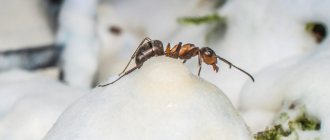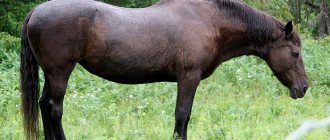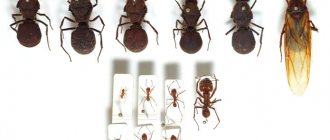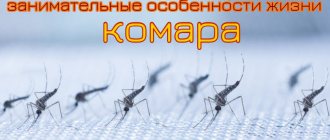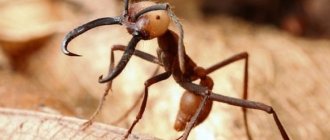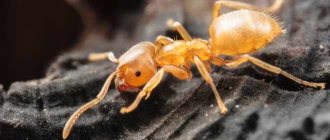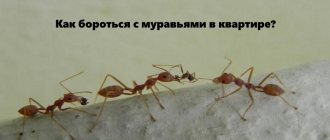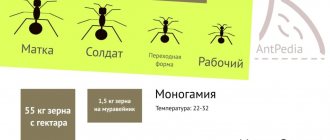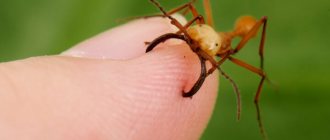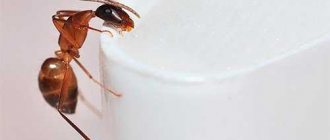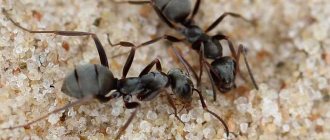A living organism needs rest and sleep. However, looking at the vigorous activity of ants, we can draw conclusions that life in the anthill is in full swing during daylight hours and is unlikely to stop at night.
Ants never sleep in the full sense of the word , but to restore strength and replenish energy resources, these tiny insects can freeze for a couple of minutes several times throughout the day.
This dream can be repeated up to hundreds of times a day. The ability of ants to restore energy reserves with the help of short-term sleep is called a kind of guarantor of protection for the anthill, since most of the colony is always awake.
Do ants sleep
In order to find out whether ants sleep at all, researchers of the insect world placed tiny cameras inside the anthill passages, which monitored the lives of workers of the insect world around the clock.
After some time, recordings obtained through video cameras placed in the colony allowed us to conclude that the ants sleep for short periods of time.
During the day, ants sleep up to two hundred to two hundred and fifty times a day . In this case, the duration of sleep does not exceed one to two minutes. During the specified time, the insect freezes, after which it continues the previously interrupted activity.
The duration of sleep is no more than five hours for workers, soldiers and other inhabitants of the home. However, the queen or queen may nap for eight hours or more.
Ant queen
What does the queen ant look like? In most colonies, the individuals responsible for reproducing offspring are significantly larger in size than ordinary worker insects. The queen can be identified by the presence of wings, which she requires to search for new habitats. However, when moving into a colony, they may disappear. In this case, in the place where the cephalothorax passes into the abdomen, corresponding marks remain in the form of small tubercles.
How do they sleep
Since ants sleep for a minimal period of time, but many times a day, sleep can find a representative of the colony anywhere. While resting, ants tilt their heads and lower their antennae. After a few seconds, the individual wakes up, comes to its senses, and then continues its hike.
Queens or queens sleep in a similar manner. However, the video obtained after conducting round-the-clock monitoring of the life of the colony recorded a peculiarity: if the queen sleeps with her head slightly raised, this indicates shallow sleep. If she sleeps with her antennae and head down, then we are talking about deep sleep, which lasts longer than usual.
Sleep Features
Since an ant's sleep takes a minimal amount of time, but can be repeated hundreds of times a day, "switching off" can happen anywhere. When resting, the insect tilts its head, lowering its antennae. After a minute or two, the individuals wake up, coming to their senses, continuing their journey or work.
The queen of the family (uterus) sleeps according to the same principle. True, according to the research results obtained, scientists made the following conclusions: if during sleep the uterus raises its head a little, then it is superficial, but if, on the contrary, it lowers it, this is deep sleep, which can last for a longer period.
How long do they sleep?
How much an ant sleeps depends on the caste of a particular individual. For example, the duration of sleep of the uterus is comparable to the amount of rest needed by the average person, and is about eight hours a day. The remaining representatives of the colony, that is, workers, soldiers, nannies and others, sleep somewhat less - the total sleep duration of such individuals is eight hours.
During the winter period , ants living in areas with moderate or severe climatic conditions can fall into a state of suspended animation, which can also be characterized as prolonged sleep.
As a rule, this is typical only for certain species; some of them spend the winter in a state of half-sleep, when their activity decreases, but does not stop.
The fact that such freezing of individual individuals is precisely a dream is also evidenced by the following: if a sleeping ant is touched by relatives running past, there is no response from this individual. The following can also happen: when a threat arises to the anthill, relatives wake up the sleeping individuals, informing them of the need to protect the colony.
Sleep duration
The duration of an ant's sleep primarily depends on the caste of the individual. For example, the uterus should sleep as much as the average person, that is, it needs proper rest to perform its main function - maintaining offspring. Speaking about the other representatives of the colony, namely workers, soldiers, nannies and others, they only need a few hours in the totality of short-term sleep.
If we talk about the winter period, then throughout the cold weather, ants that live in areas with moderate or severe climatic conditions, individuals fall into suspended animation, that is, a state characterized by a fairly long sleep (hibernation).
But it is worth noting that the above rule is typical only for some species; many of the families live through the winter in a state of half-asleep, that is, their level of activity decreases, but a complete stop is not observed.
It is possible to determine that the momentary freezing of an individual of the colony is a dream by the following features recorded by scientists: if the sleeping ants were touched by relatives who were running past, and there is no response from the sleeping ants, then this is definitely rest.
But if any threat arises for the anthill, relatives begin to disturb the sleeping inhabitants, thereby signaling the need to protect the colony.
When ants sleep
Ants sleep at any time of the day. Despite the fact that at night the anthill’s connection with the outside world is interrupted until morning, which implies the closing of the passages, life continues to boil directly inside the colony. As for sleep during the cold season, individuals that hibernate are in a state of suspended animation until the weather warms up and the snow melts.
Scientists have identified a peculiarity : the body of ants in a state of hibernation continues to function, but in a slow motion. In this way, insects conserve the body’s energy resources, which allows them to consume less food than usual. In part, it is this specificity of life activity that allows the colony to survive a period of prolonged cold weather.
Wintering of ants
What do ants do in winter? Preparing for the arrival of cold weather is an extremely labor-intensive process for such insects. Most of their time is spent storing food in special pantries. Edible plant particles, various seeds, dried insects, etc. are brought here. As the ambient temperature decreases, all remaining larvae are fed.
To prevent the colony from freezing in the cold, the exits from the anthill are carefully sealed with a special substance that consists of clay, insect saliva and plant remains. During thaws, the colony can be ventilated. If the anthill gets wet in winter, all food supplies are moved by the workers to deep storerooms.
Do they sleep at night?
So, the life of an ant colony is in full swing around the clock; at night, individual representatives do not sleep, protecting the anthill and caring for the larvae. It is especially important to protect the colony from various external factors, for example, enemies, natural disasters - floods, fires.
When a threat appears, adults exhibit an immediate reaction, which may differ according to caste. For example, nurse ants strive to immediately move the queen and larvae to a safe place, soldiers prevent an attack on the colony of other insects.
The absence of night rest allows the colony to prevent attacks from other insects and mammals that hunt during this time of day.
The queen or queen also sleeps throughout the day; scientists have not identified the dependence of the duration of her sleep on the period of the day. However, during the cold season, the queens of most ant species sleep - they fall into a state of suspended animation, do not lay eggs, and their food and energy needs are significantly reduced.
Why don't ants freeze in winter?
These earthly inhabitants even live in the northern tundra, which is known for its cold air temperatures. In the Kamchatka and polar ants, the passages and “rooms” are located at a depth of 10-30 cm.
Ants living in the temperate zone build a “dome” over their homes to warm their chambers. If an individual rises to the first “floors”, it will immediately feel discomfort and cold and go back down.
They are allowed to survive by special sugary substances secreted by aphids. Sugar accumulates in the body, and then the substances in the body of the ant are converted into glycerol. Thanks to this, they can easily tolerate temperatures down to -50 degrees. Accordingly, they enter diapause. At first glance, the colony, along with the queen and larvae, appear to be dead, because they do not move or eat. The diapause period lasts until the temperature rises.
Beetles move in with them for the winter. The hosts feed on their sweet secretion, and the guests feed on prepared supplies.
Interesting facts about ants
Ants are an amazing insect species with interesting behavioral characteristics.
The following facts indicate that the life of these workers differs from other representatives of the insect world::
- Regardless of caste, individual representatives of the species are distinguished by a high level of intelligence. Ants placed in complex labyrinths are faster than other insects in choosing the right direction and finding exits.
- Ants are considered to be among the most ancient representatives of the insect world, living on planet Earth unchanged. Scientists have found fossils of these tiny creatures that are one hundred million years old.
- These insects are omnivores. They can attack other arthropods and feed on organic matter, such as rotten plant roots.
- One adult can lift a load that exceeds its own body weight.
- Ants continue to feed individuals who have lost the ability to obtain food, for example, due to injury or illness. This lasts exactly as long as the mutilated individual retains the ability to tap its antennae on the heads of its fellows, thereby giving a kind of conditioned signals.
- Kindred may execute individuals whose duties include gathering food. This happens if the ant returns back without food supplies several times in a row. If this happens repeatedly, such an individual becomes food itself.
- In tropical countries, there are species of predatory ants that destroy everything in their path, be it plants or animals. Even lions and other mammals avoid encounters with these tiny predators.
- The ants contain “livestock,” which are called aphids. Working representatives of the colony provide constant care for the “pets”, receiving a sweet substance rich in nutrients.
- Contrary to popular belief, some members of the colony are unique drones. When eighty percent of the population of an anthill is busy arranging housing, protecting it, and obtaining food, twenty percent of the colony is busy. Changes do not occur if the number of hard workers decreases for certain reasons. What causes this specificity remains a mystery.
Based on the above, we can draw conclusions: these tiny workers spend most of their lives awake and sleep very little. They require short-term, shallow sleep, which restores performance and replenishes the energy reserves of the insect’s body.
How do ants prepare for winter?
To ensure sufficient nutrition and a quiet winter, they perform a large amount of work. First of all, the ants prepare a sufficient amount of food; for this, workers collect caterpillars, beetles, bedbugs and other garden insects that live in their area. A certain part is used to feed the larvae, and the rest is stored in special chambers suitable for wintering. This way they won’t have to leave their “rooms” and let the cold into the anthill. The harvested diet also includes various parts of plants, their fruits and seeds. In addition, they bring live aphids into underground rooms, and the ants happily eat their secretions.
Preparation is not complete without insulating the home. Working ants build a kind of hill (dome) over their homes, which provides warmth during harsh weather conditions. In red forest ants, such a mound reaches a width of more than 1 meter and a height of 50 cm. This heap contains passages and chambers. The collected loose material prevents the cold from penetrating into the underground rooms. They also prepare compartments for wintering, insulating them and storing food.
Adult insects take care of the future generation. To prevent the larvae from dying, they are transferred to chambers where it is warmer and the microclimate is satisfactory. There the air temperature will practically not fluctuate and drop to critical points.
With the onset of late autumn, little workaholics clog all the exits from their homes. The materials used are earth, clay, dry leaves, etc. In this way they ensure maximum warmth for their home.
If the upper layers freeze, the owners move supplies deeper, where the cold cannot reach and spoil the food.
Every year, before the air temperature drops, they expand their home and strive to make it even deeper.
Analysis of the problem and probable causes
Before embarking on a stubborn and victorious struggle, homeowners must honestly and objectively answer the following questions for themselves:
- Is it customary to leave dishes unwashed from time to time?
- does everyone in the house cover the trash can with a lid;
- Is the apartment regularly cleaned?
- Is there a custom at home to store food in open food containers?
The exact answers of each person living in an apartment, country house or house will determine how fast and effective the upcoming struggle will be.
Insects can only be removed by correcting the previously established state of affairs.
By changing household routines to the extent necessary, it will be possible to truly eliminate the cause of the spread of pests in housing - at home, in the country, in an apartment.
To consolidate the results achieved in the fight, it is necessary to maintain perfect order at home or in the country for several days, or better yet, for at least one week, without leaving food open and without provoking another invasion of ants.
Is it true that ants never sleep, how do they restore energy?
A living organism needs rest and sleep. However, looking at the vigorous activity of ants, we can draw conclusions that life in the anthill is in full swing during daylight hours and is unlikely to stop at night.
Ants never sleep in the full sense of the word , but to restore strength and replenish energy resources, these tiny insects can freeze for a couple of minutes several times throughout the day.
This dream can be repeated up to hundreds of times a day. The ability of ants to restore energy reserves with the help of short-term sleep is called a kind of guarantor of protection for the anthill, since most of the colony is always awake.
Distinctive features
Ants can sleep at any time of the day. Despite the fact that during the night the anthill and the outside world interrupt their connection until the morning (the passages are closed), you need to understand that the life of the colony continues to boil inside. If we take into account sleep in the winter season, then insects that hibernate can remain in suspended animation until it warms up and the snow melts.
Scientists have identified a certain feature: the body of an arthropod, which is in hibernation, continues to function, there is only one difference - a slowdown in all functions and functioning of organs.
Thanks to this, ants can preserve the energy resource of their own body, thereby ensuring the need for less food consumption than at normal times. This specific period is an opportunity for the family to survive prolonged cold weather.
